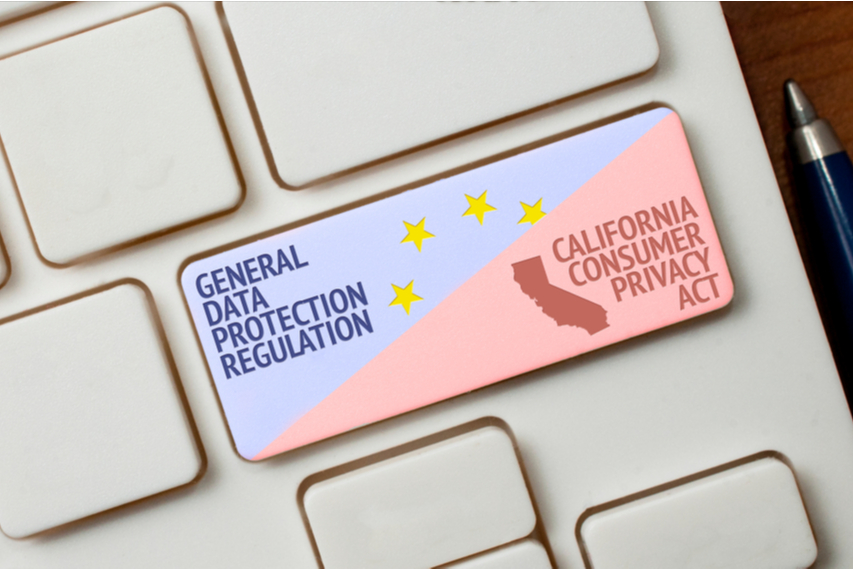
California has passed the CCPA or California Consumer Privacy act to protect the data of its citizens. Consumers can control the information that companies are collecting. This act will help governments in solving privacy concerns. Tech companies like Google and Facebook are storing a lot of personal information.
This bill was approved by the Senate and the State assembly in 2019. CCPA law will ensure that consumers will have control over their data. Large tech companies have access to too much personal information. Thus, governments are ensuring that tech companies are not misusing this data. If tech companies are not complying with CCPA, then they need to deal with very heavy fines.
The CCPA is a very good step taken by the U.S. However, it is similar to EU GDPR. This data regulation law was made in 2018. This law is applicable in all EU countries. It will impact every company that is dealing with the EU citizen’s data. The location of the company doesn’t matter. If your company is dealing with EU citizens’ data, then you need to follow the GDRP regulation. Thus, GDPR will find all U.S. businesses with remote workers, international sites, and global operations.
The CCPA regulation is still changing with time. Thus, it might become very similar to the GDPR regulation. It is important to ensure that you are following both CCPA and GDPR laws. This will ensure that you don’t need to worry about any legal penalties. There are many similarities between the GDPR and CCPA law. In this article, we are going to talk about the difference between the CCPA and GDPR.
-
Businesses that need to comply
In GDPR, the location and size of businesses don’t matter. If you are storing EU’s citizen data, then you need to follow GDPR compliance. The CCPA regulation is actually very narrower in scope. It is only for California-based businesses and these businesses must have revenue of over $25 million USD. Companies that are storing personal information also need to follow this compliance. This was actually added to the law after the Cambridge Analytica scandal.
-
Financial penalties
The penalties of both the regulation are different. In GDPR, the penalty for data breaches and non-compliance can reach up to 20 million euros or 4% of annual global turnover. The higher amount of these two things will be chosen. Also, you need to ensure that you will follow the law in the future.
The CCPA fines can go up to $7,500 USD. These fines are applicable to every violation. The point of breach will be considered during the violation. However, GDPR can directly apply a sanction on your company if you are not behaving properly. If you are at risk of a breach, then GDPR will apply a sanction to you. In CCPA, consumers can also sue businesses for violations.
-
Consumer rights
In both, regulations consumers will have various rights like the right to have information accessed or deleted. The GDPR will only focus on the data that is associated with the EU customer. They don’t care about other data that you are storing. However, CCPA will consider both households and consumers as entities. In some cases, they will only consider the data that is provided by the customers. They don’t care about the data purchased or sourced from other third parties. This gives more freedom to companies as they can buy data from other parties. However, businesses should test their processes and make sure that they can deal with these changes. They need to make sure that they can delete the consumer’s data easily. Also, make sure that you know where you are storing your consumer data. Your consumers might ask you to delete their data.
-
Enforcement and enactment
The CCPA might become more descriptive with time. CCPA is created to protect the data of consumers. The government wants to ensure that companies can’t use their consumer data without permission. The GDPR is very old as it was adopted first in 2016. After that, it was enforced in 2018. Most companies already know about GDPR law.
The CCPA act is currently not comprehensive like GPDR. However, it is the first step to protecting the privacy of users. The government will slowly add more things to this act. California is the first state to take user privacy seriously. This law will provide more protection to the user’s data. It will ensure that consumers can control their data. Also, other states will start following California’s lead. If you are operating in the USA, then you should start following the CCPA act. This will ensure that you are ready for future laws.
There are also some similarities in these acts. In both laws, you need to encrypt your data. This ensures that the user’s data is completely protected. Businesses need to encrypt the data that they are storing. Companies need to protect their data from attackers. However, sometimes data breaches can happen even if companies are using the best security protocols. Thus, both act focuses heavily on data encryption. In case of a data breach, if your data is encrypted, then your fine will be reduced. Also, you don’t need to notify every user in such cases. Thus, you should always encrypt the data that you are storing.
Conclusion
It is very important to follow regulations like GDPR and CCPA. If you are not following these regulations, then you need to deal with heavy penalties. However, most companies don’t have access to a good IT security team. Thus, it becomes very hard to follow these complicated laws. Experienced MSPs like Bleuwire can help you in following GDPR and CCPA laws. They will make sure that your network is protected from attackers. Also, they will encrypt your user data. If you need more information regarding GDPR and CCPA, then you can contact Bleuwire.
Contact us today to learn about Bleuwire™ services and solutions in how we can help your business.





